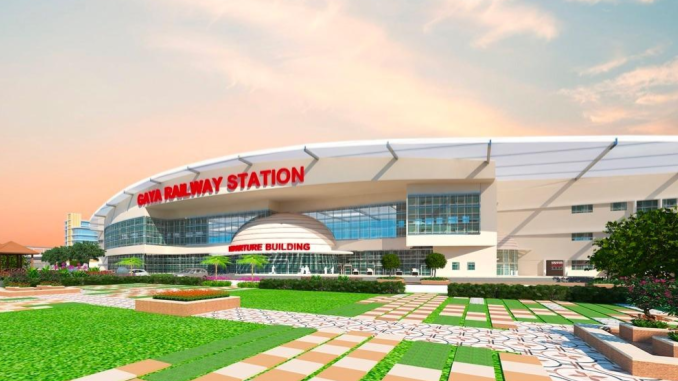In a significant stride towards bolstering India’s infrastructure, Prime Minister Narendra Modi recently inaugurated a slew of projects aimed at enhancing the country’s railway network and connectivity, including the redevelopment of 554 railway stations under the Amrit Bharat Station Scheme and the construction of 1500 road over bridges and underpasses, marking a momentous investment of thousands of crores. These initiatives, spanning various regions across the nation, signify a paradigm shift towards modernization and inclusivity in infrastructure development.
Central to these endeavours is the revitalization of Katra Railway Station, which serves as the gateway to the revered shrine of Shri Mata Vaishno Devi Ji. It underscores a holistic approach to infrastructure, integrating modern amenities with local culture and heritage. This project will benefit more than one crore pilgrims visiting Katra every year. With a focus on environmental sustainability and accessibility, these stations are poised to become vibrant city centres, fostering economic growth and enhancing the passenger experience. Furthermore, the construction of the Vijaypur Overhead Bridge exemplifies the Government’s commitment to addressing local needs and improving transportation efficiency. By facilitating smoother rail-road connectivity and easing congestion, this project is set to transform the lives of residents in over 50 villages, exemplifying the tangible impact of infrastructure development on grassroots communities. Furthermore, the Government’s unwavering resolve and tireless efforts to realise these ambitious projects are commendable. Despite facing unprecedented challenges, including the global pandemic, the Government has demonstrated resilience and determination in advancing its development agenda, showcasing India’s ability to overcome adversity and emerge stronger.
The significance of these initiatives extends beyond mere infrastructural upgrades; they represent a larger vision for a developed and inclusive India. Prime Minister Modi’s emphasis on youth empowerment and their pivotal role in shaping the nation’s future resonates deeply in these endeavours. By prioritising projects that benefit the younger demographic, such as educational institutions and enhanced transportation networks, the Government is laying the groundwork for a dynamic and progressive society. Moreover, the Prime Minister’s assertion regarding the prudent utilisation of taxpayers’ money underscores a commitment to fiscal responsibility and transparency. The discount on railway tickets reflects a tangible effort to alleviate the financial burden on commuters while maximising the utility of public funds. Such measures not only enhance accessibility but also instil public trust in governance, fostering a conducive environment for sustainable development. The transformative impact of these infrastructure projects extends beyond immediate economic benefits. By catalysing employment opportunities and stimulating economic growth, they contribute to a virtuous cycle of prosperity and development.
Equally noteworthy are the Government’s concerted efforts to decentralise development and address regional disparities. The inclusion of stations like Katra, Udhampur, Jammu, and Budgam in the Amrit Bharat Station scheme exemplifies a commitment to equitable development, particularly in regions with strategic significance. By leveraging infrastructure as a catalyst for regional growth, the Government is poised to unlock the latent potential of diverse geographies.
Tangible milestones in infrastructure development reinforce confidence in the nation’s trajectory. By prioritising the needs of the populace and delivering on promises of progress, the Government is poised to usher in a new era of prosperity and opportunity for all citizens. With a steadfast commitment to accelerating development and empowering every citizen, India is poised to emerge as a beacon of hope and opportunity on the global stage.


